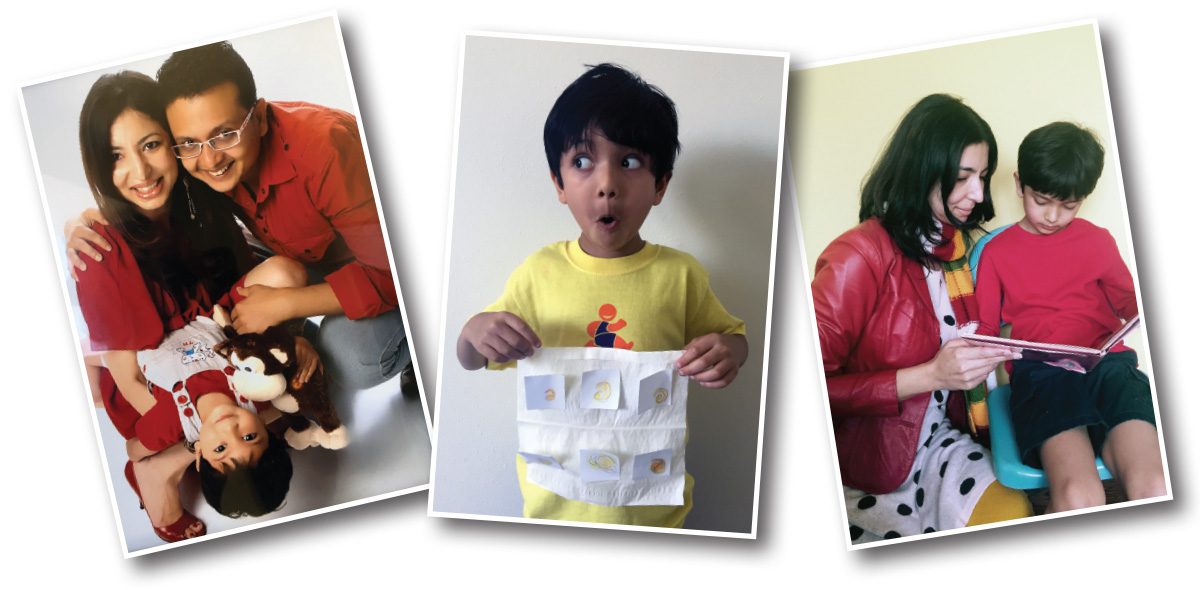Shared from inMotion | Volume 28, Issue 2 | March/April 2018, Page 30
by Harleen Chhabra Gupt
As a parent, I want to raise a strong and resilient child. As an amputee parent, I am a protective mom who doesn’t want her child to go through any life-altering experience similar to her own.
While I don’t want to see my child hurt, I do want him to develop his “strength reserve” and be able to deal with any scrapes and bruises that life may throw at him. But how does one go about doing that? Moreover, what is the source of one’s strength, and how can one acquire it? Is it an inborn quality, or is it a result of one’s environment?
While many of us at times may have had the inner strength to cope with as serious an experience as an amputation, we can’t undermine the power of a strong support system of family, friends, caregivers and communities, all who helped us keep our chin up when we were just barely hanging on.
There are a number of ways we can build that strong support system around our children (external environment) and make them dig deeper within themselves (internal source). Stories, role-plays, tons of explanation and most of all, living a life that demonstrates these ways are most effective to help cement these concepts in our little ones’ minds. As amputee parents, we have the privilege of being living examples for our children on how to bounce back after a tumble. In the end, my hope, like yours, is to stock up strength and resilience in our children, ready to put to use (we hope never, but) if and when the time comes.
“We’re here for you”
Provide a safe, secure and nurturing home that your child can count on. Cultivate a relationship where he can trust you and feels like sharing things with you, no matter what happens in his life. Moms, that means we need to keep our own drama in check. Listen and then act, not react. As they get older, they also need to learn from us about being grateful for what we have, instead of complaining about what we’ve lost.

The Kissing Hand; I Love You All Day Long; I Love You, Daddy; There Are Oh So Many Things I Love About You; Bear Says Thanks; Papa, Do You Love Me?; Guess How Much I Love You; Hugs and Kisses
“You can do it”
Independence is a two-edged sword, but a necessary one, that allows your child to fail, realize that it’s not the end of the world, and then get back up again. Whether it’s brushing his teeth on his own, making his bed, finishing his homework, or driving his own car, show it to him and then turn him loose. That is how he will learn responsibility and take ownership of his failures and successes. Also, take the time to discuss his fears and help him overcome those in due time. Who knows? These lessons that we try to teach them may end up teaching us a thing or two in return.

Exclamation Mark; Courage; Clorinda; I Like Myself; Oh, The Places You’ll Go!; If I Never Forever Endeavor; The Dandelion Seed; Peep!; Silly Billy; Howard B. Wigglebottom Learns About Courage; Leo, the Late Bloomer; Owl Babies
“Hello! My name is…”
For a long time, you have been ‘it’ for your child. But you know that’s not enough. Invest time and effort in helping your child develop meaningful relationships with others in the family, as well as friendships in the community. Help your child play actively with others her age when she is little. Encourage her to participate in sports, competitions and shows. Stay engaged in school and community activities and expose her to an active social life outside the home. That does not mean attending every single birthday party that your child may get invited to, but building relationship bridges with a chosen few.

A Rainbow of Friends; The Littlest Elf; Let’s Be Friends; The Sandwich Swap; Miss Spider’s Tea Party; Hug Time; Amazing Grace
“I know that’s not fair”
Children have a sense of fairness from a very early age. Teaching them the difference between right and wrong, I have found, is not that difficult; however, having them practice it is. To be fair, this takes quite a bit of self-control for the little ones. Progressively, you can use their sense of fairness to help them develop empathy. Setting limits and good disciplining techniques that work for you and your child’s temperament is key. Upping their emotional IQ so that they can not only deal with but even stand up for themselves or for others when they see a wrong is an important test of their confidence and strength.

The Recess Queen; Moody Cow Learns Compassion; One; Library Lion; I Can Help; A Chair for My Mother; Stand Tall, Molly Lou Melon; The Birdman; Have You Filled a Bucket Today?



